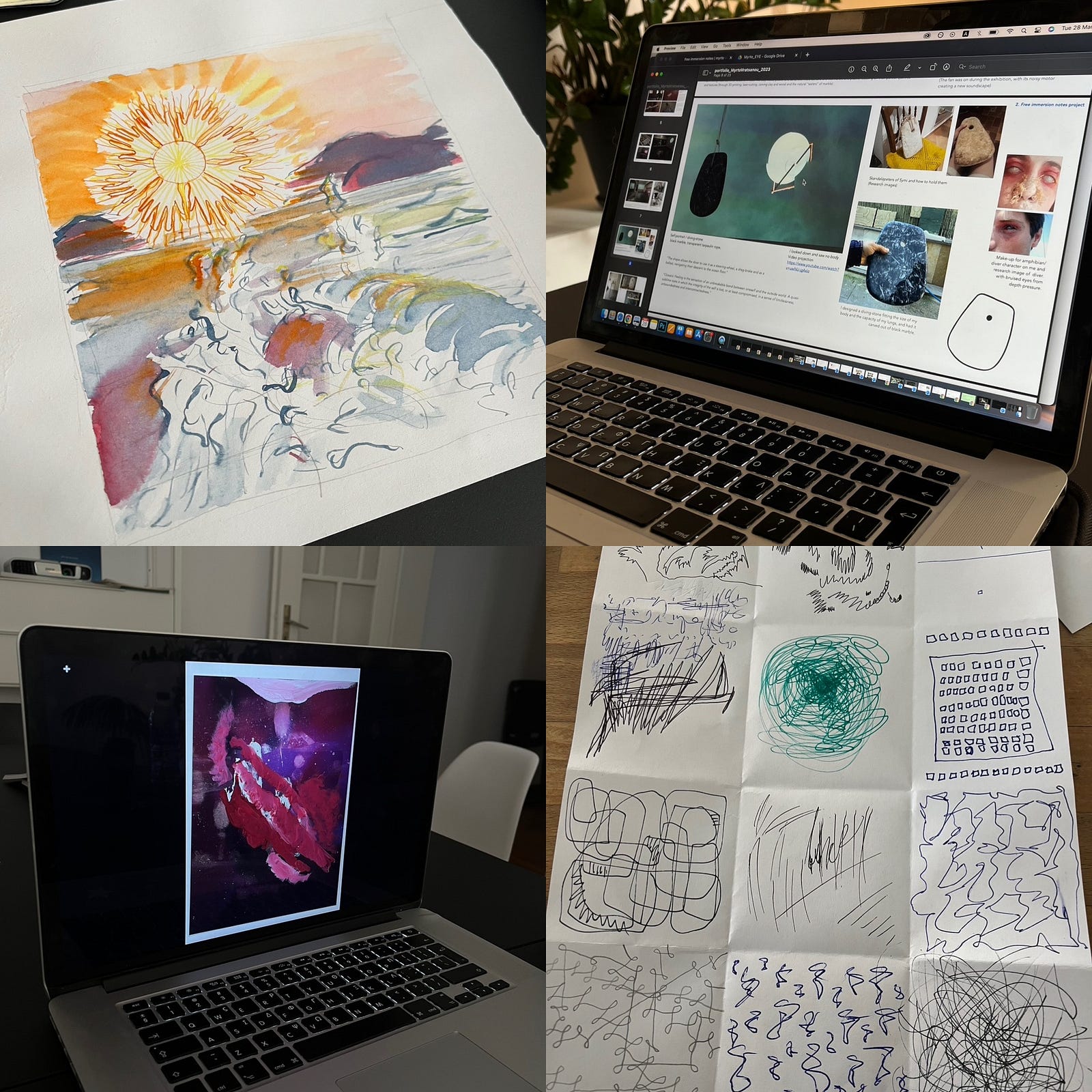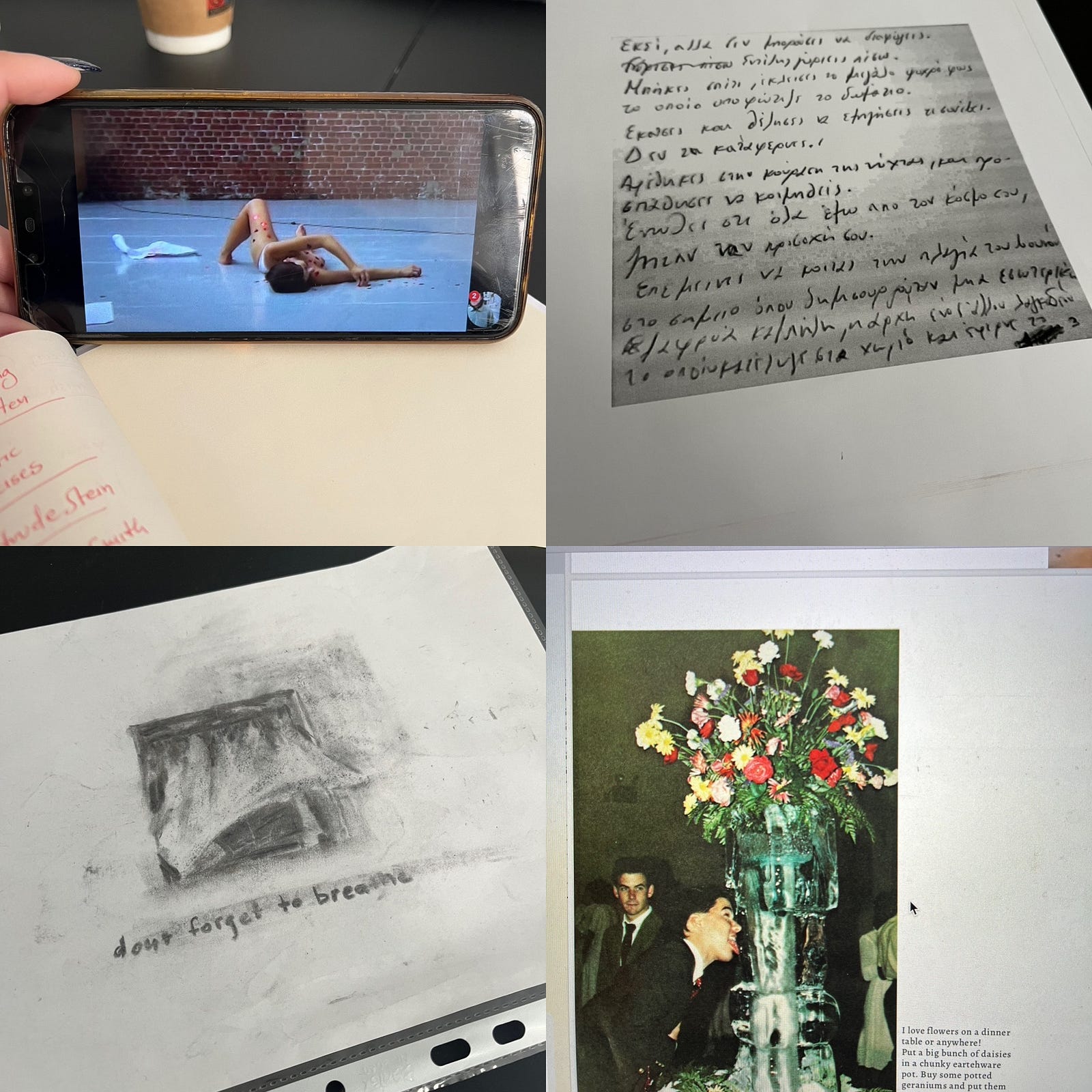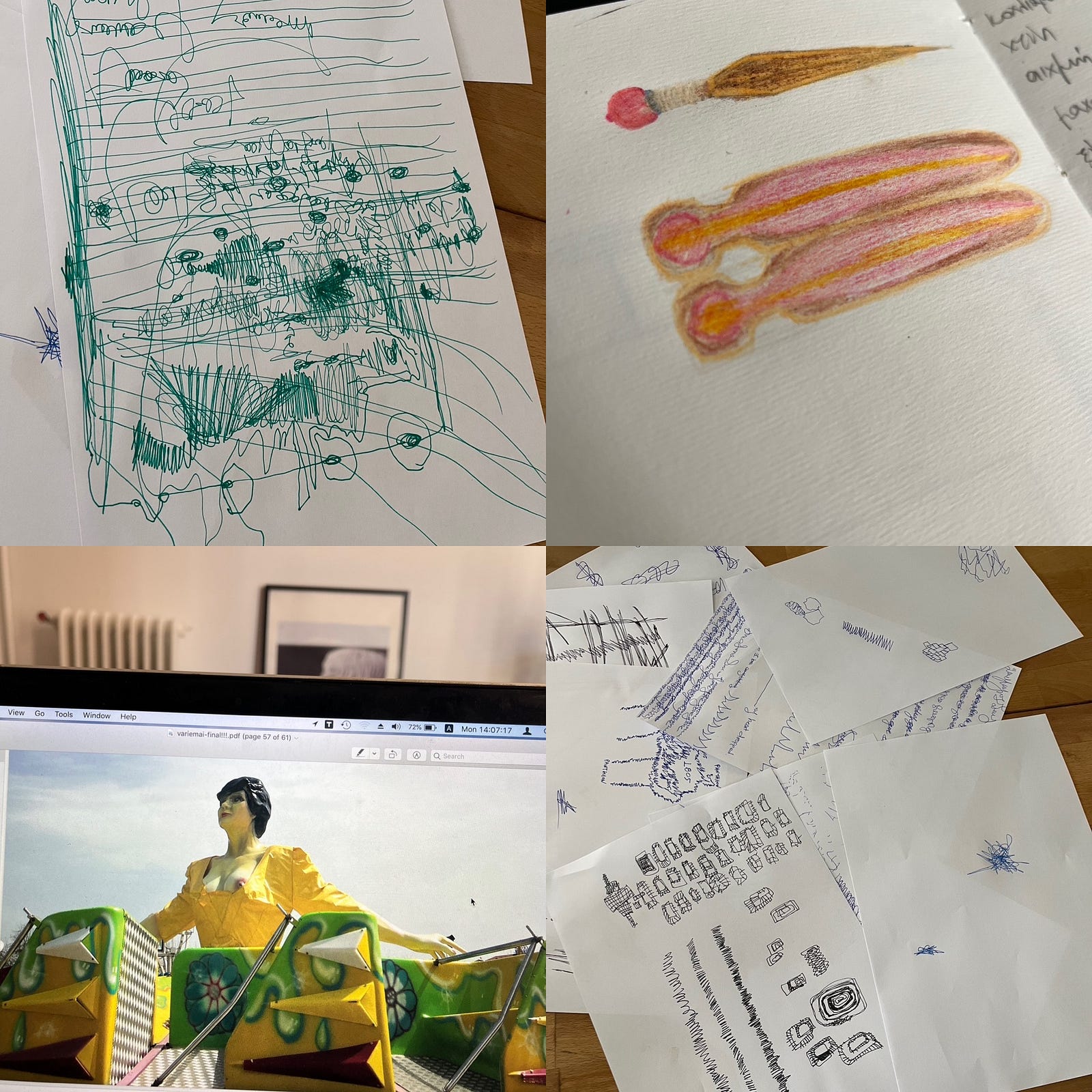27.11.2023
On education. To all of you, who have found your own way
In her book Teaching to Transgress, Education as the Practice of Freedom, Bell Hooks speaks about pedagogical practices as systems that should approach knowledge not as a means for gaining, collecting and reproducing information, but as “processes of inquiry” to quote the words of Paolo Freire, a theorist whose work affected Ηooks’ theses. What can processes of inquiry open up when it comes to resisting hierarchical or power structures? What can genuine questions do, when coming from the teacher, the mentor, the educator? When they don’t look for immediate answers, but they instead seek to find thinking procedures that can lead to alternative ways of being in life, of working, loving, belonging? I remember once, my friend and artist Abri de Zwardt told me I should only ask questions with answers unknown to me. It was a few years back and through his words I realized that that’s the only way to grow together with a group of people, to abnegate authority, to share, not rule, time and space, to build a fearless and fierce community.

I have since, started observing the dynamics of and between people. How natural and easy comes for some of the participants of a class to speak, or for how long? Are their voices loud and clear or trembling and hesitant? Why some students would interrupt others in order to argue on a subject, even if, most of the times, their gesture wouldn’t mean a lack of respect, at least intentionally? How can the embodiment of class, gender, privilege or just history and trauma form or affect our ways of existing and interacting with others within educational and other contexts? And how could I, as an educator, a mediator of what’s seen, spoken or heard but also of what remains unutterable, could raise these issues without hurting someone? How could I not be in or speak from a position of authority, perpetuating the same schemes?
A student with whom I worked with many years back, told me that as a teacher you should take the risk and cope with the consequences, if you are serving educational contexts as safe spaces, or as “alternative practices of sociability”, to quote the words of Sylvia Federici. What he meant is that inevitably, as an educator, you’ll do mistakes. And as an educator you need to take the risk of making these mistakes, that could as Angela Davis once said, allow for the world to be a better place, even in many years from now. I can’t recall her exact words but I remember her saying: “We need to think and act as if we were living in 200 years ahead of our times”. And it’s true, that it does take a lot of time and effort and persistence to change the language, the narratives and the behavioral attitudes that systemic pedagogical contexts have embedded to us, both educators and students.

So, the thinkers I’ve started researching in order to find this other system, this safe space, which instead of suppressing the mind allows it to grow bigger, were coming with practical ways of engaging with alternative knowledge production methods. I followed some of them, I initiated some others; like, I stopped sending the students I was working with, obligatory materials. Everything was optional, as not everyone has the time or the mental space to read or just go through them. Some students were working full time jobs in order to support their living and tuition fees, some others were going through a mental break down or they were just neurodivergent. And not only I shouldn’t force them to read, but I should also find other means to stimulate their attention.
Tina Campt, in one of her recent interviews commenting on her book Listening to Images says: “I’m trying push us to connect things that we want to think of as separate. We want to think of the sonic as distinct from the visual, and we are resistant to thinking them together in a way that is synesthetic”. Her words, resonated with me; that’s what I had to enhance, challenging even my own capacities or limitations when it comes to my fixed registers. And through working on them myself, I could share this experience with the students. This synaesthetic thinking, could bring together the oxymora, that were never contradictory, metaphorically and otherwise. It could be used as a scheme that through its abstract or sensitive graspability, would allow us to be in knowledge otherwise. Being an observant, has not only opened up the space for another, yet rational way of being a teacher, but also revealed an a-logical one. One that was shaped or driven by the ways both me and the students were “listening to the images” of a film, reading the breaths and the gaps and the repetitions uttered by each of us, touching the comfort or the uneasiness of an ambience co-created by a room full of energies.

Throughout the years, both me and the students started sharing the room’s responsibility, worked on altering the belief that a teacher has the power to plant the knowledge in the students heads, the authority or the permission to lead a class under these premises. And over this process I found myself in chaos, copying with the consequences of what collectivity and togetherness can trigger, in the most dynamic, yet never negative way. Practically, I almost never managed to stick on the syllabus I had initially suggested, as that was constantly, organically changing, following the conversations, desires and needs of the participants. Emotionally, I had and still have to work with my own agonies and daemons and failures and denials, every single time and in the exact same way I have to work on them as a student, a participant of a reading or research group. And every time it is all different, in scale, in context and content, yet also in love and affect, in giving, in perceiving, in growing.
PS:
This text is devoted to the SNF ARTWORKS Fellows group participating in the seminar “Articulating the seminar, forming the collective”.
To asking difficult questions, to being advocates of your agencies, and desires and limits and fears; to all of you, ready to listen and watch and laugh and cry and quit when it was all too much; to your willful vulnerability and to your unconditional sharing of references and experiences and traumas. To all of you who have found your own way to what Fred Moten refers to as the ‘undercommons’.
Ioanna Gerakidi
—
Ioanna Gerakidi is a writer, curator and educator based in Athens. Her research interests think through the subjects of language and disorder, drawing on feminist, educational, poetic and archival studies and schemes. She has collaborated with and curated exhibitions and events for various institutions and galleries and residencies and her texts and poems have appeared in international platforms, magazines and publications. She has lectured or led workshops, seminars and talks for academies and research programs across Europe. Her practice and exhibitions have been awarded by institutions, such as Rupert Residency, Mondriaan Fonds, Outset and the Stavros Niarchos Foundation (SNF) Artist Fellowship by ARTWORKS, amongst others.
“Articulating the seminar, forming the collective” was designed and moderated by Ioanna Gerakidi during the 5th SNF Artist Fellowship Program by ARTWORKS (2023).



